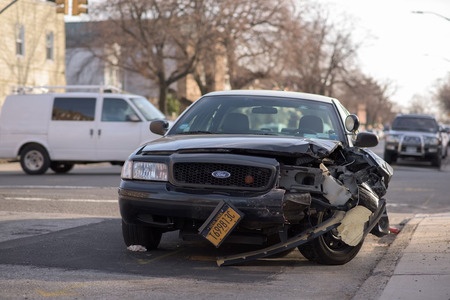
Being in a car crash can be a traumatic, chaotic event. Once the dust settles, you’re likely facing vehicle damages, medical bills, lost wages, and insurance claims.
Colorado has been in the headlines for several teen car crashes. There have been around 2,300 reported deaths annually. This is an increase of around 18% from the previous year.
Navigating this complex legal aftermath without transparent guidance on your rights can lead to irreparable financial and health consequences. Understanding car accident laws and securing legal representation ensures you receive fair compensation and protects your best interests long-term.
Understanding Colorado Car Accident Laws
In December 2023, Colorado witnessed 94,000 motor accidents, with the trend at an all-time high.
Colorado follows a “fault”-based auto insurance system. The at-fault driver’s liability coverage pays for damages they caused. So, determining fault relies on investigating circumstances, traffic offenses committed, and duty of care owed.
This can be a very complex journey with a lot of investigative follow-ups. An experienced personal injury lawyer in Colorado Springs can help you piece together evidence identifying liable parties accurately.
Generally, statutes of limitations require filing personal injury lawsuits related to car accidents within 3 years. At a time when you are reeling with injuries and mental trauma, such strict deadlines can be overwhelming. An attorney can take away a lot of your stress, while you concentrate on getting better.
Auto liability laws also link damages reimbursement to categories covering vehicle repairs and replacement, medical expenses, lost income, pain and suffering, and wrongful death expenses if applicable based on precedent. Knowing coverage limits, claiming eligibility, and evidence needed to prove unique damages ensures fair recouping.
Navigating Insurance Claims
Pursuing fair reimbursement from insurers after accidents requires methodical documentation, unwavering persistence, and legal aptitude. These traits help to counter delay tactics or denials aiming to limit payouts.
Understanding claims processes prepares victims to effectively dispute unsatisfactory resolutions.
Documentation Best Practices
This is a difficult process that requires your full cooperation and input. According to Springs Law Group, you need to help your attorney log all accident details, medical evaluations and costs, vehicle repair estimates, lost wage timing, and other applicable expenses incurred. It’s essential to work with a trust attorney arizona who can guide you through these complexities effectively.
These facts are vital for demonstrating and maximizing the complete impact in financial terms.
Additionally, careful detailing of the accident circumstances in a written affidavit is important to lock in a statement of facts early. You need to have copies of police reports, scene photos, bystander testimonies, and camera footage available too.
Strategic Correspondence
You need to be on your toes here. Understand and track all correspondence with insurance adjusters. If you feel the initial offers are unsatisfactory, convey it to your attorney and do not budge.
Always confirm the next steps and follow-up timings in writing after calls. This sets clear expectations around response times. Gather details on prior comparable incident payouts through freedom of information channels. This will help your attorney’s counsel to propose higher counters rooted in precedent.
Emotional Intelligence
Expect some friction even with adjusters acting in your best faith. You need to approach negotiations through a lens of compassion but remain resolute in achieving a fair claim value. This journey can take an emotional toll on you.
Having legal representation alleviates confrontation stresses while still advancing your interests.
Choosing the Right Lawyer
Selecting an attorney well-versed specifically in car accident claims is key to receiving maximum entitled compensation without undue friction. Optimal qualifications to look for include extensive practice tenure, location familiarity, strong negotiation skills, and relevant specialty experience.
Here are a few important parameters you can account for:
- Several years of experience handling local auto accident cases build extensive nuanced knowledge around liability laws, injury valuations, and litigation tactics.
Such seasoned regional professionals also develop credibility with claims adjusters, mediators, and court officials over their careers through repeat interactions. This facilitates smoother proceedings by earning benefit-of-the-doubt assumptions. - Strong familiarity with local venues, judges, and typical timelines helps set expectations realistically around arbitration processes or potential court appearances down the line.
Location-specific insights enable navigating systems and forms seamlessly as well for clients unfamiliar with the bureaucracy. - A proven history of reaching precedent-setting verdicts or settlements for similar car accident cases indicates effectiveness.
Check case records, regional rankings and awards, and client testimonials referencing specific dollar amounts reached. Gauging real specialty experience takes transparency.
In conclusion, recovering fully after an automobile accident poses many under-appreciated challenges – legal, medical, and psychological. Educating yourself on navigating the law system, insurance claims and health considerations can make this rocky road a little bit smoother.
